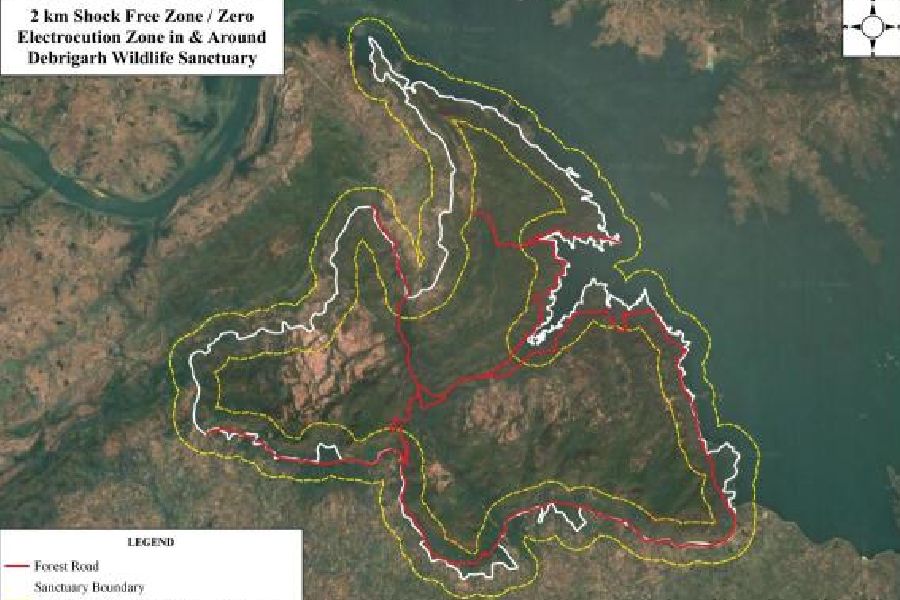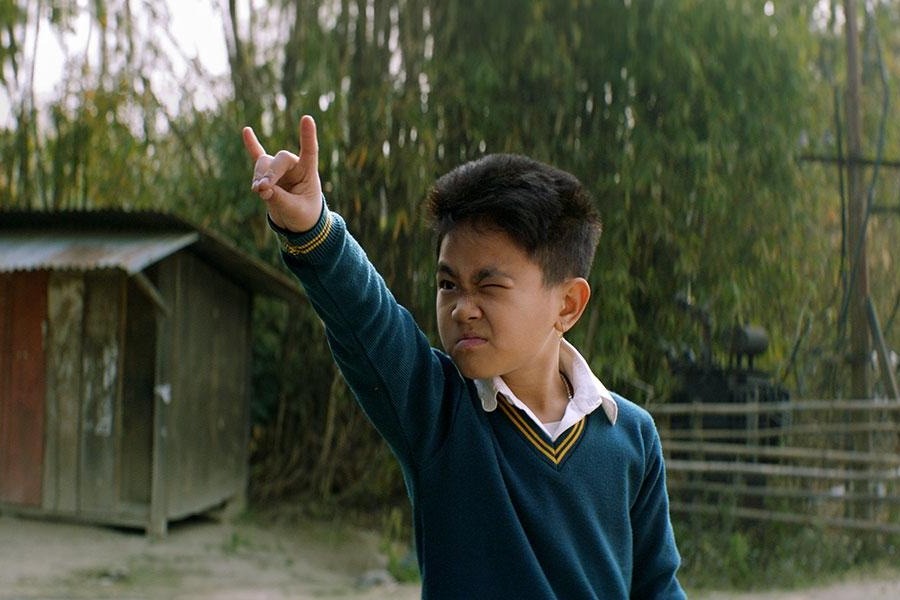Odisha government’s Hirakud Wildlife Division has declared the 100km continuous boundary of the Debrigarh sanctuary located in western Odisha as a “shock-free and zero electrocution zone”.
The step was possible with the help of the eco-development committees of 68 villages located near the sanctuary. With this, the wildlife division hopes no more animals die at the hands of poachers due to electrocution in the sanctuary.
The zone covers a 100km continuous boundary on the western part of Debrigarh. “The rest of the boundary is flanked by the Hirakud Reservoir and the wetlands. This 100km is flanked by 68 villages (with a population ranging from 200 to 1000 in each village) bordering the sanctuary and fully dependent on Debrigarh for day-to-day activities. The people have joined hands together and have agreed to make this critical area shock-free,” Divisional Forest Officer (DFO) Hirakud Wildlife Division (Debrigarh Sanctuary), Anshu Pragyan Das told The Telegraph.
She said: “Several poaching incidents of Schedule One species including the Bengal Tiger and leopards died in this zone due to electrocution in the last decade. Sixty-eight villages are predominantly agriculture-oriented and have put electric hooks for saving crops from depredation as well as for the poaching of wild boar for meat.”
The DFO maintained, “As there is regular movement of animals from the sanctuary outside during dawn and dusk, making this zone free from electrocution was essential. Metal detectors and live wire detectors are in regular use by 12 patrolling teams comprising 72 squads with six vehicles engaged for this purpose.
The DFO said, “The Debrigarh boundary (western side) is flanked by villages and this area is prone to traps/snares/electric hooking for poaching wild animals. Traps, snares, and electric hooks, sometimes 500 metres long, have also been recovered from the sanctuary boundary. So, with the support of 68 villages and Debrigarh patrolling units, we have made it a Zero-Eletrocution Zone and Shock-Free Zone. We will maintain this boundary area as well.”
She said, “When one animal in a herd (Deer or any other animal) falls in a trap/snare or electric hook, it also causes stress/shock to other animals of the herd. Zero poaching will increase the animal population in the sanctuary by 20 to 30 per cent.”
To involve the people in the movement to protect the animals, the EDC elections in 68 villages were conducted during February 2025 and new presidents were elected in the presence of Debrigarh authorities, with a vision to make this border shock-free for animals. “The majority of presidents are women with good communication skills, so this mission will become successful in the long run with their support,” she said.
The authorities successfully relocated the villages inside the sanctuary in 2022-2023 to avoid the human-animal conflict. Despite this, poaching was regularly noticed in the areas. Now with the people’s support, the forest officials are hopeful of overcoming the issue of poaching.










